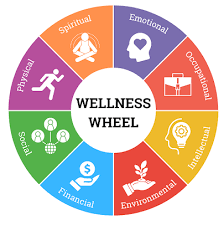The Importance of Mental Health and Wellbeing
Our mental health is just as important as our physical health. It affects how we think, feel, and act, influencing every aspect of our lives. Mental wellbeing is crucial for overall happiness and quality of life.
Many factors can impact our mental health, including stress, trauma, genetics, and life experiences. It’s essential to pay attention to our mental wellbeing and seek help when needed.
Why Mental Health Matters
Good mental health allows us to cope with the stresses of daily life, work productively, maintain healthy relationships, and make meaningful contributions to society. When our mental health suffers, it can affect our ability to function well in various areas of life.
Ignoring mental health issues can lead to more severe problems over time. Conditions like anxiety disorders, depression, and substance abuse can have a profound impact on both individuals and their loved ones.
Ways to Support Mental Wellbeing
There are many strategies individuals can use to support their mental wellbeing:
- Self-care: Engage in activities that bring you joy and relaxation.
- Healthy lifestyle: Eat well, exercise regularly, get enough sleep.
- Social connections: Maintain relationships with friends and family.
- Mindfulness: Practice mindfulness techniques to stay present and manage stress.
- Professional help: Seek therapy or counselling if needed.
The Stigma Surrounding Mental Health
Despite growing awareness about mental health issues, stigma still exists. Many people feel ashamed or embarrassed to seek help for their mental wellbeing due to fear of judgment or discrimination.
Educating ourselves about mental health and challenging stereotypes is crucial in breaking down barriers that prevent individuals from seeking the support they need.
In Conclusion
Prioritising mental health is essential for living a fulfilling and balanced life. By taking care of our mental wellbeing and supporting others in their journey towards better mental health, we contribute to a healthier society as a whole.
Understanding Mental Health and Wellbeing: Key Concepts and Connections
- What is wellbeing and mental health?
- What is mental health and wellbeing?
- What are the 5 points of mental wellbeing?
- What are mental aspects of health and wellbeing?
- How are mental health and wellbeing linked together?
What is wellbeing and mental health?
Wellbeing and mental health are interconnected aspects of our overall health and happiness. Wellbeing encompasses a sense of fulfilment, balance, and contentment in various areas of life, including physical, emotional, social, and psychological well-being. Mental health, on the other hand, refers to our cognitive and emotional well-being, encompassing how we think, feel, and behave. It involves managing stress effectively, maintaining healthy relationships, coping with challenges, and seeking help when needed. Both wellbeing and mental health are integral to leading a fulfilling and meaningful life.
What is mental health and wellbeing?
Mental health and wellbeing encompass the state of our emotional, psychological, and social well-being. It relates to how we think, feel, and act as individuals, as well as how we handle stress, relate to others, and make choices. Mental health is not just the absence of mental illness but also includes factors such as resilience, self-esteem, and the ability to cope with life’s challenges. Wellbeing goes beyond happiness and contentment; it involves feeling fulfilled, having a sense of purpose, and being able to navigate life with a positive outlook. Prioritising mental health and wellbeing is essential for overall quality of life and contributes to our ability to lead fulfilling and productive lives.
What are the 5 points of mental wellbeing?
Understanding the five key points of mental wellbeing is essential for maintaining a healthy mind. These points, often referred to as the “Five Ways to Wellbeing,” include connecting with others, being physically active, learning new things, giving to others, and taking notice of the present moment. By incorporating these practices into our daily lives, we can nurture our mental health and enhance our overall sense of wellbeing. Each point serves as a valuable tool in promoting resilience, managing stress, and fostering a positive outlook on life.
What are mental aspects of health and wellbeing?
The mental aspects of health and wellbeing encompass a range of factors that influence our psychological and emotional state. These include our thoughts, feelings, attitudes, beliefs, and coping mechanisms. Mental health is not just the absence of mental illness; it involves having a positive sense of wellbeing, resilience in facing life’s challenges, and the ability to form healthy relationships. Nurturing our mental aspects of health and wellbeing involves self-awareness, self-care practices, seeking support when needed, and engaging in activities that promote mental clarity and emotional balance. Prioritising our mental health is vital for overall wellness and a fulfilling life.
How are mental health and wellbeing linked together?
Mental health and wellbeing are intricately linked, with one significantly influencing the other. Mental health refers to our emotional, psychological, and social well-being, encompassing how we think, feel, and act. When our mental health is positive, it contributes to a sense of overall wellbeing and contentment in life. Conversely, challenges in mental health can impact our wellbeing by affecting our ability to cope with stress, maintain relationships, and engage in daily activities. Nurturing good mental health through self-care practices, seeking support when needed, and fostering positive social connections all play a vital role in promoting wellbeing and enhancing quality of life.

